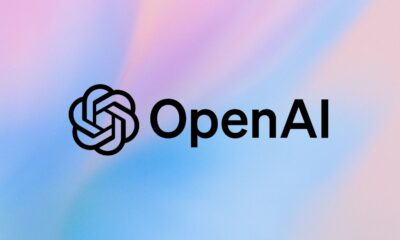AI
OpenAI reshuffles AI personality team, starts new OAI Labs
OAL Labs focuses on building new interfaces for how people collaborate with AI.

Just a heads up, if you buy something through our links, we may get a small share of the sale. It’s one of the ways we keep the lights on here. Click here for more.
OpenAI is shuffling its Model Behavior team, a group of about 14 researchers.
According to a memo from chief research officer Mark Chen, the squad will be folded into the larger Post Training team, the group that polishes up models after their raw pre-training binge.
The reorg means the Behavior folks will now report to Max Schwarzer, OpenAI’s Post Training lead. Their founding leader, Joanne Jang, isn’t disappearing, though.
Instead, she’s launching a new skunkworks called OAI Labs, focused on building “new interfaces for how people collaborate with AI.”
The Model Behavior team has been quietly influential. They’re the ones who tamp down on sycophancy, wrestle with political bias, and even helped the company decide what it thinks about AI consciousness.
Essentially, they’re the personality coaches for GPT-4, GPT-4o, GPT-4.5, and GPT-5.
The timing isn’t random. OpenAI’s newest model, GPT-5, drew user complaints for sounding a bit disappointing. The company bragged it was less sycophantic, but customers wanted more warmth.
Cue some backtracking: OpenAI restored access to older models and later patched GPT-5 to be friendlier without turning it into your overly agreeable roommate.
But the stakes are bigger than tone. In August, the parents of 16-year-old Adam Raine filed a lawsuit alleging that GPT-4o didn’t push back on his suicidal ideations before his death.
That tragedy shows the impossible balancing act: making AI feel supportive without it becoming an enabler.
For her part, Jang sounds energized. She told TechCrunch she wants to move beyond “companionship” bots or autonomous agents and instead build AI as “instruments for thinking, making, playing, doing, learning, and connecting.”
Will that involve collaborations with Jony Ive’s mysterious AI hardware project? Maybe. But for now, she’s sticking to research she knows best.
So, the team that taught AI how to behave is moving in-house, while its leader goes off to reinvent the way we even interact with AI. No pressure.
Will OpenAI’s new focus on AI collaboration interfaces through OAI Labs lead to genuinely better human-AI partnerships, or are we just getting more sophisticated ways to depend on machines? Does the lawsuit over GPT-4o’s response to suicidal ideation show that AI personality tuning is a critical safety issue, or an impossible standard to meet? Tell us below in the comments, or reach us via our Twitter or Facebook.





























